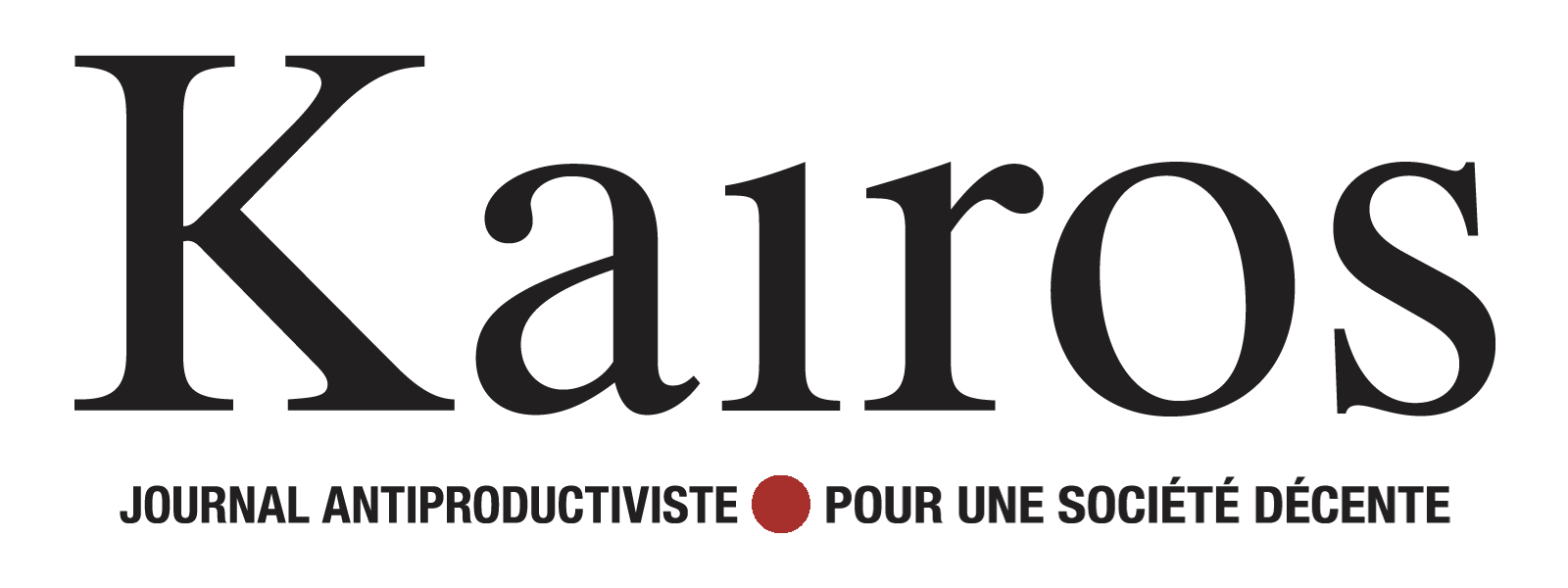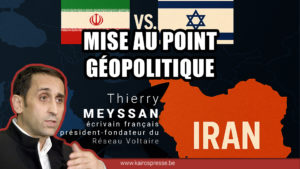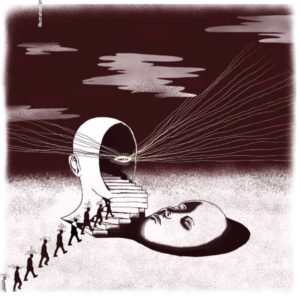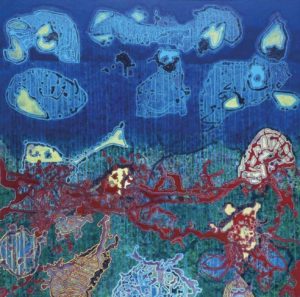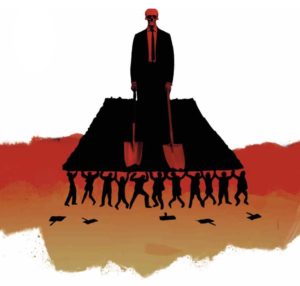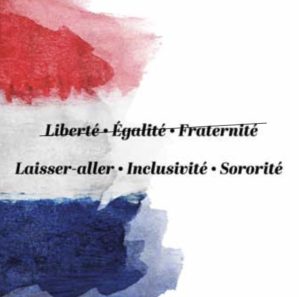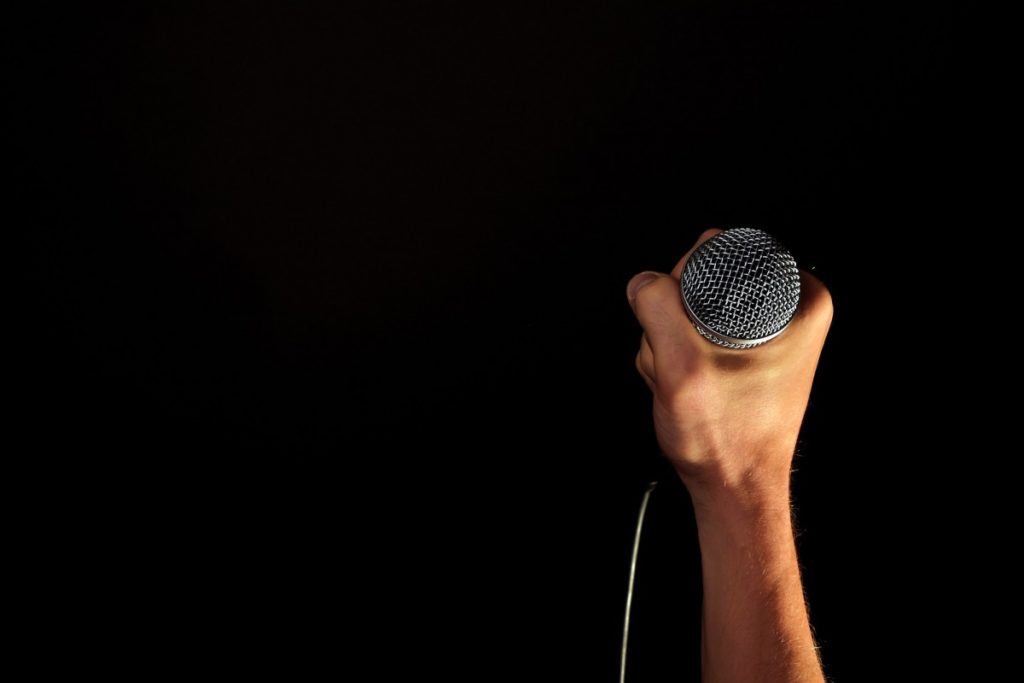
Une manière de penser la pandémie du Covid-19 est de la considérer comme révélatrice du fonctionnement de notre société. En effet, en appliquant une pression, elle amplifie la dynamique de nos organisations sociales. De ce fait, certains aspects se dégagent d’un bruit de fond, où ils demeurent habituellement peu perceptibles, voire même indiscernables. Parmi ces aspects se trouvent notamment les moyens (comme la communication) utilisés pour imposer des mesures excessives et souvent arbitraires.
Depuis la grippe espagnole (et le SIDA), l’inquiétude d’une pandémie dans notre monde globalisé est restée dans les mœurs. Un aperçu de cette crainte a été visible à plusieurs reprises dans le passé avec des épidémies avortées. Les modèles imaginés par des épidémiologistes de l’Imperial College en Angleterre, tels que Neil Ferguson, avaient prédit par exemple (1):
- en 2002, que d’ici 2080, jusqu’à 150 000 personnes pourraient mourir de la maladie de la vache folle — au Royaume-Uni, il n’y a eu que 177 décès
- en 2005, que jusqu’à 150 millions allaient mourir de la grippe aviaire — seules 282 personnes sont décédées de la maladie entre 2003 et 2009
- en 2009, dans le pire scénario raisonnable, que la grippe porcine entraînerait la mort de 65 000 Anglais – or, il n’y en a eu que 457 au Royaume-Uni
Plus récemment en 2019, un célèbre virologue belge expliquait lors d’une conférence au Royal Institute of Foreign Affairs à Londres comment vendre une pandémie en instrumentalisant la peur et influençant l’opinion publique via les médias(2). Des vaccins contre le H1N1 ont été fabriqués dans la précipitation, s’avérant ultérieurement responsables de graves effets secondaires, tels que la narcolepsie(3).
Suite aux épidémies de coronavirus (SARS-CoV‑1 en 2002–2004 et MERS en 2012), une des hypothèses jugées les plus plausibles était une pandémie qui serait causée spécifiquement par un coronavirus, sujet étudié notamment par des laboratoires à Wuhan. Il est ainsi peu surprenant que l’annonce d’une éruption épidémique liée à un nouveau coronavirus en Chine ait provoqué un affolement. Contraints d’agir, les gouvernements se sont tournés vers ces mêmes cavaliers de l’apocalypse cités ci-dessus qui les conseillaient lors de la gestion du H1N1! Sans grande surprise, ces derniers ont à nouveau prédit des millions de morts si des mesures dites non pharmaceutiques (NPI pour Non Pharmaceutical Intervention), telles que le confinement strict ou la distanciation sociale, n’étaient pas appliquées… tout en admettant simultanément que leurs modèles ne prenaient pas en compte les implications éthiques et socio-économiques qu’auraient ces mesures(4) ! Avec le confinement rigoureux en Chine et les modèles alarmants de l’Imperial College, les pays européens ont ainsi décidé d’imposer ces NPI draconiennes.
Le professeur Ari Joffe de l’Université d’Alberta au Canada décrit dans son étude COVID-19: Rethinking the Lockdown – Groupthink(5), portant sur les effets désastreux des confinements, plusieurs biais cognitifs, dont:
- Le biais d’ancrage qui consiste à préférer l’hypothèse initiale et à ignorer les preuves qui réfutent cette dernière ;
- L’escalade d’engagement dans lequel des investissements dans un plan d’action défini sont maintenus, même face à des preuves de meilleures options, respectant ainsi les décisions antérieures ;
- Le biais de superstition qui postule que l’action est meilleure que la non-action (même en l’absence de preuves), car il réduit l’anxiété ;
- Le biais du présent qui favorise les bénéfices immédiats à des bénéfices encore plus importants dans le futur (les mesures qui permettraient d’éviter plus de décès à long terme semblant moins attrayantes) ;
- Et le biais des vies identifiables qui comprend l’effet de victimes identifiables (négligence des statistiques de décès invisibles, comme par exemple les victimes collatérales des mesures,rapportées au niveau de la population) et du cause à effet identifiable (priorisation des efforts pour sauver des vies d’une cause connue, même si davantage de vies étaient sauvées grâce à des réponses alternatives).
Ces différents biais, parmi de nombreux autres, me semblent expliquer en partie non seulement les démarches de différents gouvernements, mais également l’établissement et le maintien d’un certain narratif.Un narratif, qui a fini par captiver une écrasante majorité de la population, sans épargner même les personnes de formation scientifique.
Des mesures aussi prohibitives n’auraient jamais pu être imposées sans la construction de ce narratif, qui trouve sa fondation dans une menace grave, relayée et amplifiée par les médias traditionnels. Ces derniers l’ont maintenu en diffusant quotidiennement de manière morbide les chiffres des décédés COVID-19, et par la suite les chiffres de contaminations. Le narratif s’est ainsi progressivement installé au moyen de plusieurs méthodes, dont la diffusion d’un message unique par toutes les voies de communication, en se propageant dans la société sous forme de doxa (ou l’Ensemble des opinions reçues sans discussion, comme évidentes, dans une civilisation donnée(6)).
Il est frappant de constater que la notion de guerre soit évoquée dans le contexte de la pandémie… Car la propagande a toujours été un outil fondamental lors des guerres, et une de ses pratiques est la censure. Dans notre ère numérique, elle prend la forme de fact checking (vérification des sources). Le 25 novembre 2020, j’ai diffusé un article sur Facebook intitulé Are Face Masks Effective? The Evidence publié sur Swiss Policy Research (SPR) (association indépendante, non partisane et sans but lucratif, dont l’objectif est d’investiguer la propagande géopolitique)(7). L’article en question citait dix études qui concluent que le masque n’est pas efficace contre la propagation du SRAS-CoV‑2, accompagnées de dix autres aspects à prendre en considération lorsque l’on évalue l’efficacité des masques. Afin de compléter ces informations, l’article reprenait et analysait même sept études présentant les effets avérés des masques sur la propagation du virus. Cet article ne se limitait pas à une opinion non fondée, mais défendait une position sur base de références et pourtant Facebook lui a attribué un label de fausse information. Le lien proposé par ce fact-checking menait sur le site de Lead News, qui affirmait que plusieurs sources confirment que les masques fonctionnent contre la propagation sur SRAS-CoV‑2 tout en ne citant qu’une seule et unique source, le Center for Disease Control and Prevention (le centre de prévention et de contrôle de maladie des États-Unis)(8) ! En fouillant davantage, il s’est avéré que Facebook luttait contre la désinformation en effectuant des fact-checks à l’aide de vérificateurs de sources dits indépendants. Mais le fameux Lead News (qui est financé uniquement par Facebook) est une branche d’un autre groupe, le Credibility Coalition, lui-même financé entre autres par Facebook, Google et Twitter(9).
Plus récemment, sur YouTube cette fois-ci, la vidéo du Grand Débat(10) organisé par Kairos n’a même pas tenu 24h avant d’être retirée sous motif de mésinformation médicale. Pour rappel, une série d’experts scientifiques et de représentants du gouvernement belge avaient été conviés à débattre avec six autres intervenants (dont moi-même) de milieux scientifiques et médicaux différents, mais aucun n’a accepté l’invitation. Le débat s’est donc déroulé plutôt sous forme d’échanges de points de vue. En cherchant la raison de l’interdiction de la vidéo, YouTube informait qu’il n’autorise pas les contenus qui propagent des informations médicales incorrectes contredisant celles des autorités sanitaires locales ou de l’Organisation mondiale de la Santé (OMS) concernant la COVID-19. Comme exemples de contenus interdits sont nommés notamment ceux qui prétendent qu’un traitement ou un médicament spécifique garantit de guérir de la COVID-19 et ceux qui contredisent le consensus des experts d’autorités sanitaires locales ou de l’OMS au sujet du vaccin contre la COVID-19 (j’invite les lecteurs à lire la liste des contenus non autorisés sous cette référence(11)).
Ce phénomène de fact-checking n’est pas limité aux réseaux sociaux, les médias traditionnels l’exerçant également. La Libre Belgique a créé une rubrique nommée La Source dédiée aux vérifications de sources. Dans un article intitulé Les tests PCR surévaluent-ils les cas de Covid-19 ? publié le 4 avril 2021(12), La Libre Belgique a analysé les publications LinkedIn du Prof Martin Zizi portant sur deux affirmations:
- PCR positif ≠ infection
- PCR positif ≠ contagiosité
Plutôt que de présenter d’éventuelles références contredisant ces déclarations, La Source s’est satisfaite de commentaires de l’experte Dr. L. Cornelissen. Le Prof Zizi, pour sa part, a vérifié les sources de l’article de La Libre Belgique en maintenant sa position et en fact-checkant ainsi les faits de La Libre (donnant lieu à l’article PCR inutiles si on est asymptomatique(13)). Il est regrettable que La Libre n’ait pas lu l’article COVID-19: effet de la vaccination sur le risque de transmission publié sur le site de Chirec Pro(14), dans lequel sont mis en avant les effets soi-disant bénéfiques de la vaccination sur la transmission du SRAS-CoV‑2. Dans cet article, on peut lire:
La présence de virus détecté par PCR n’est pas synonyme de risque de transmission puisque la PCR est susceptible d’identifier des charges virales faibles et donc pas nécessairement suffisantes pour être responsables d’une éventuelle transmission, ceci étant d’ailleurs confirmé par la réduction globale de la charge virale chez les sujets vaccinés.
La référence citée pour cette affirmation est de qualité médiocre (voire faible) pour soutenir l’hypothèse selon laquelle la vaccination diminuerait la propagation. Notons les trois problèmes majeurs de cette source:
- L’article scientifique référencé — mentionne explicitement que This preprint reports new research that has not been certified by peer review and should not be used to guide clinical practice (= cette prépublication rapporte de nouvelles recherches qui n’ont pas été certifiées par des pairs et ne peuvent pas être utilisées pour guider la pratique clinique),
- l’étude ne compare pas directement des personnes vaccinées avec un groupe contrôle, mais se contente d’évaluer l’efficacité d’un vaccin sur des personnes hypothétiquement vaccinées…
- Les chercheurs comparent les données PCR positives (avec les biais méthodologiques cités plus haut) d’une tranche d’âge avec une autre tranche d’âge, établissant ainsi un problème méthodologique en plus.
Ainsi, le Chirec affirme similairement au prof Zizi qu’un PCR positif n’est pas synonyme de contagiosité… mais cite des références nettement moins fiables. Quel avis en donnerait La Source?
Si le fact-checking existait déjà avant la crise sanitaire actuelle (en devenant un sujet davantage débattu pendant le mandat du président Trump, réputé pour ses déclarations controversées), il est devenu un réel outil de référence pour supprimer tout ce qui est jugé contestable. Mais cela soulève plusieurs interrogations, telles que:
- quel contenu peut être vérifié et identifié comme fait établi ? Est-il par exemple légitime de censurer des arguments sur des sujets scientifiques en pleine évolution sous prétexte d’une contestation de la part d’autorités locales et de l’OMS (qui ont déjà prouvé leur ignorance et leur erreur sur la nature du SRAS-CoV‑2 à plusieurs reprises) ?
- Le fact-checking est-il objectif quand la vérification sur les réseaux sociaux se fait partiellement par des logiciels (compte tenu de la grande quantité d’information mise en ligne chaque jour)(15) et par des vérificateurs, eux-mêmes payés par les réseaux sociaux(16) ?
- Et ces interrogations soulèvent une question plus cruciale encore (et qui semble être fréquemment reportée): quelle fonction occupent les réseaux sociaux sur la place publique ? Le directeur de Facebook, Marc Zuckerberg, ne cessait de répéter que Facebook n’était pas une forme de média(17). La censure de contenu est-elle alors justifiée sous prétexte que Facebook se qualifie d’entreprise technologique et que cette dernière collabore avec les gouvernements pour diminuer la propagation de mésinformation(18) tout en partageant des données prétendument anonymes de leurs utilisateurs avec les autorités pour combattre la propagation du coronavirus(19) ? Et qu’en est-il du journalisme, qui était jadis considéré comme le quatrième pouvoir censé veiller aux dérives des trois autres incarnant l’État (pouvoir exécutif, législatif et judiciaire), et qui n’a jamais cessé dès le début de la crise de donner la parole aux experts de l’État faisant office de figure d’autorité pendant cette crise sanitaire et de les défendre à tout prix ?
L’établissement d’un narratif par tous ces moyens de communication est devenu sans doute le plus visible lors de la campagne de vaccination contre le COVID-19. En plus des censures accrues sur les réseaux sociaux de toute argumentation qui va à l’encontre de ces vaccins (dont l’efficacité réelle et les risques des effets secondaires restent encore discutables(20)), le corps médical participe également à l’influence de l’opinion publique sans aucun débat visible sur les médias traditionnels. Même les professionnels de la santé mentale travaillent sur les manières de faire accepter à la population les mesures, dont les vaccins, et recommandent des techniques comme le nudging (= persuader quelqu’un de faire quelque chose, graduellement ou par la flatterie ; encourager délicatement quelqu’un à faire quelque chose)(21) ou carrément l’utilisation de la peur comme levier(22). Et c’est sans doute dans le cas des vaccins, où les questions d’intérêts économiques de cette crise sanitaire sont les plus identifiables.
Dans un débat avec l’essayiste français Idriss Aberkane, le médecin spécialiste en santé publique Martin Blachier affirmait l’absence des intérêts de l’industrie pharmaceutique (plus spécifiquement de l’entreprise Pfizer) lors de cette crise(23). Mais quelques recherches rapides montrent que revenus pour les trois premiers mois de 2021 de Pfizer sont de 3,5 milliards de dollars et les estimations de revenus pour l’année 2021 pour le vaccin uniquement seraient de 26 milliards de dollars (soit deux tiers de leur revenu annuel)(24). Rappelons que leur chiffre d’affaires annuel en 2019 était de 41,17 milliards de dollars. En 2020 il était de 41,9 milliards (soit une augmentation 1,79% par rapport à 2019, plutôt qu’une perte de chiffres d’affaires)(25)… Et il est probable qu’il y aura une demande saisonnière de ses vaccins contre le COVID-19 dans les années à venir (comme le vaccin contre la grippe saisonnière)(26).
Le gouvernement, ainsi que les autres États, l’industrie pharmaceutique, les médias et les réseaux sociaux maintiennent ensemble par tous les moyens possibles le narratif établi (qui leur profitent différemment à chacun) et qui est devenu la doxa. Ad astra per aspera (locution latine signifiant vers les étoiles à travers les difficultés) est devenu Ad doxa per aspera. Mais si cette influence est identifiée et visualisée comme le narratif qu’elle est, une forme de lutte reste possible: celle d’un narratif parallèle (le terme contre-narratif me semblant moins intéressant car il suggère plus l’opposition que la proposition). Dans cette construction parallèle, il serait possible d’accepter ce qui est correct dans le narratif officiel tout en argumentant contre l’information erronée, voir mensongère. Car le prix du narratif de cette crise sanitaire sera payé au moins en trois temps: 1) lors de l’implémentation des mesures, 2) lors des retombées de ces mesures sur le long terme et 3) lorsque les États viendront vers la population pour demander leur aide afin de rembourser les dettes (dont celles des vaccins prétendument gratuits). Sans parler de l’imposition d’autres dérives (que la communication) qu’il sera possible d’imposer grâce au narratif officiel, comme un passeport sanitaire, vaccinations obligatoires infondées, etc. Si s’opposer à la doxa est essentiel, il ne peut servir que de premier chapitre dans la construction d’une société plus désirable. Proposons à présent clairement les alternatives souhaitables.
- Ferguson https://www.nationalreview.com/corner/professor-lockdown-modeler-resigns-in-disgrace/
- Conférence d’un virologue belge au Royal Institute of Foreign Affairs à Londres en 2019 https://www.dhnet.be/actu/belgique/une-ancienne-video-de-marc-van-ranst-refait-surface-ou-il-explique-comment-influencer-la-population-si-vous-faites-cela-ils-ne-chercheront-pas-des-voix-alternatives-60253a957b50a62acfcc8e62
En français:
https://www.kairospresse.be/les-bons-conseils-de-marc-van-ranst-en-cas-de-pandemie/ - Sarkanen T, Alakuijala A, Julkunen I, Partinen M. Narcolepsy Associated with Pandemrix Vaccine. Curr Neurol Neurosci Rep. 2018 Jun 1;18(7):43. doi: 10.1007/s11910-018‑0851‑5. PMID: 29855798
- Walker PGT, Whittaker C, Watson O, Baguelin M, Ainslie KEC, Bhatia S, et al. Report 12: The Global Impact of COVID-19 and Strategies for Mitigation and Suppression. (2020)
Ferguson NM, Laydon D, Nedjati-Gilani G, Imai N, Ainslie K, Baguelin M, et al. Report 9: Impact of Non-pharmaceutical Interventions (NPIs) to Reduce COVID-19 Mortality and Healthcare Demand. (2020) - Joffe AR (2021) COVID-19: Rethinking the Lockdown Groupthink. Frontiers in Public Health 9:625778. doi: 10.3389/fpubh.2021.625778
- Définition de la doxa selon le dictionnaire Robert: https://dictionnaire.lerobert.com/definition/doxa
- Swiss Policy Research: https://swprs.org/face-masks-evidence/?fbclid=IwAR27ISnO9WnQQ6TRprb8WJpUwsVgSGLmCJmVSHlHbUlgMD0Di1qZP5X9iaQ#development-of-cases-after-mask-mandates
- Le fact-checking de Facebook envoyant sur le site de Lead News: https://leadstories.com/hoax-alert/2020/11/fact-check-137-many-studies-find-masks-do-work-against-the-spread-of-coronavirus.html?fbclid=IwAR0XS6ebN0gFFmVscp6QYhcwB0Ep-JyX_VW8RmV9zOH_My0es86yUDhDDLU
- Site internet du Credibility Coalition, auquel appartient le Lead News: https://credibilitycoalition.org/
- https://www.kairospresse.be/grand-debat/
- Liste des contenus interdits sur YouTube: https://support.google.com/youtube/answer/9891785
- Rubrique La Source de la Libre Belgique dédiée à la vérification de sources: https://www.lalibre.be/planete/sante/les-tests-pcr-surevaluent-ils-les-cas-de-covid-19–6066ecff7b50a6051776bce0
- https://www.kairospresse.be/pcr-inutiles-si-on-est-asymptomatique/
- http://www.chirecpro.be/fr/news/covid-19-effet-de-la-vaccination-sur-le-risque-de-transmission
- Hard Questions: How Is Facebook’s Fact-Checking Program Working? https://about.fb.com/news/2018/06/hard-questions-fact-checking/
- Site internet du Credibility Coalition, op. cit.
- https://www.reuters.com/article/us-facebook-zuckerberg-idUSKCN1141WN?utm_source=Daily+Lab+email+list&utm_campaign=107c14838f-dailylabemail3&utm_medium=email&utm_term=0_d68264fd5e-107c14838f-395963781
- https://www.facebook.com/formedia/blog/together-against-covid-19-misinformation-a-new-campaign-in-partnership-with-the-who
Je vous conseille de lire également l’article Facebook ou le retour de l’Inquisition ? de Corine Dehaes
https://www.kairospresse.be/facebook-ou-le-retour-de-linquisition/ - https://dataforgood.fb.com/docs/european-researchers-covid19/
- https://covidrationnel.be/2021/05/11/note-technique-vaccins-contre-la-covid-19-base-de-preuves-et-consentement-eclaire/
- Nudging et consentement éclair: un duo qui ne fait pas bon ménage, Ludwig Hemeleers, Kairos
- https://www.news.uliege.be/upload/docs/application/pdf/2020–04/recommandations_psychosociales_covid-19.pdf?fbclid=IwAR0aSwlrOMEgMuyUjY-WRH–L6zGzkc9k95omQHMgbY9QcqMic4JXiEzNe0
- Youtube — LES DÉBATS — Martin Blachier vs Idriss Aberkane à 29min: https://www.youtube.com/watch?v=K5CtlE9ILmE
- https://www.macrotrends.net/stocks/charts/PFE/pfizer/revenue
- Youtube — LES DÉBATS — op. cit.
- https://www.bbc.com/news/business-56979406?fbclid=IwAR2_b6UhBsvjAFc9lwsrqrjgNXG-9JkJf8QTbp4JAhqXRWjM8W7ff2MFh7M
